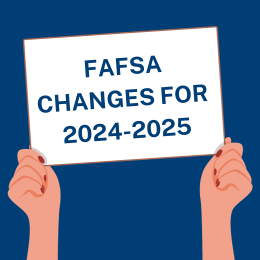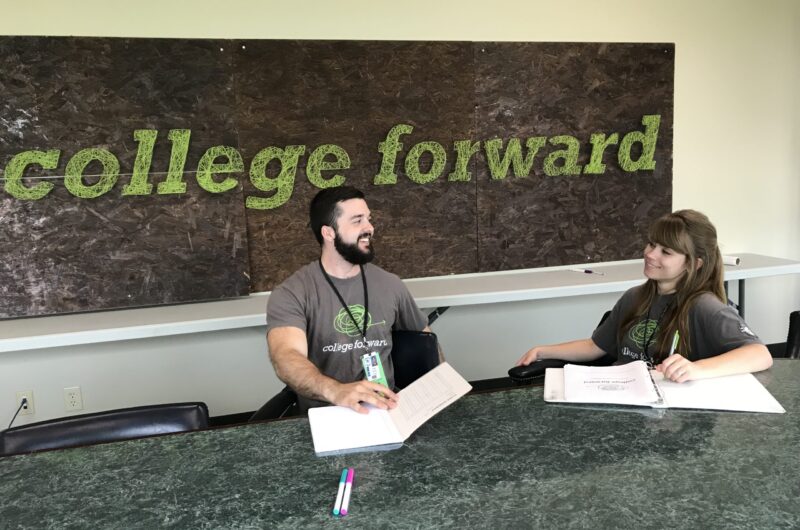As a college student, your tuition and fees give you access to a wealth of campus resources that often go underutilized. Check out this glossary of college resources to explore what services and support might be available for you at no additional cost.
College student advising center
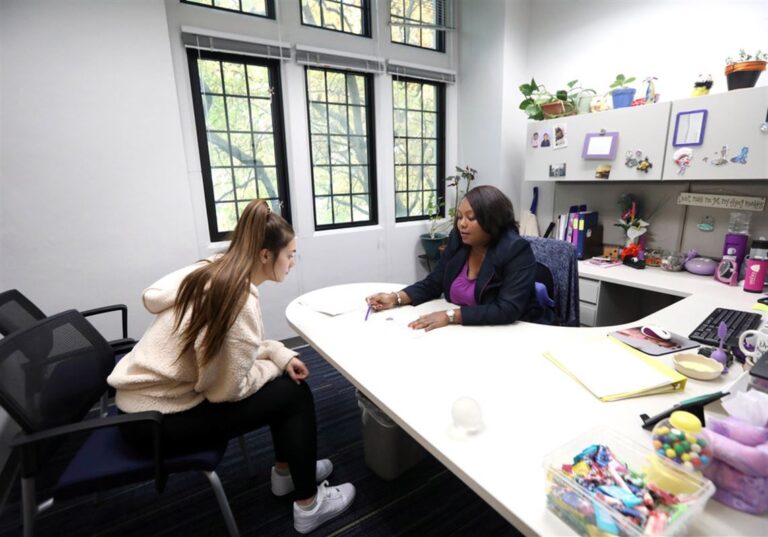
Image: The University of Texas at Austin
What They Do: For issues involving your course registration or scheduling related issues, the advising center is an excellent resource to seek. If there are issues regarding class signups or a hold on your account the advising center is a good place to seek help.
Best Use of the Resource: The best way to use this resource is through an appointment and, in some cases, a walk-in. These staff members are very knowledgeable and are there for questions and advice, but they are not there to make course or degree path decisions for you.
Who to Contact: Contact counselors and advising staff in the advising center or by finding their email online.
College bookstore

Image: Texas A&M Corpus Christi
What They Do: The bookstore not only has the books, supplies, and materials required for your classes, but it also has general convenience items, office supplies, and school swag merchandise.
Best Use of the Resource: The bookstore may offer deals and payment options for your textbooks and supplies that aren’t available anywhere else. Ask them about opportunities to use financial aid, payment plans, or rental programs to get everything you need.
Who to Contact: Speak with a cashier, manager, and store attendant.
Career center
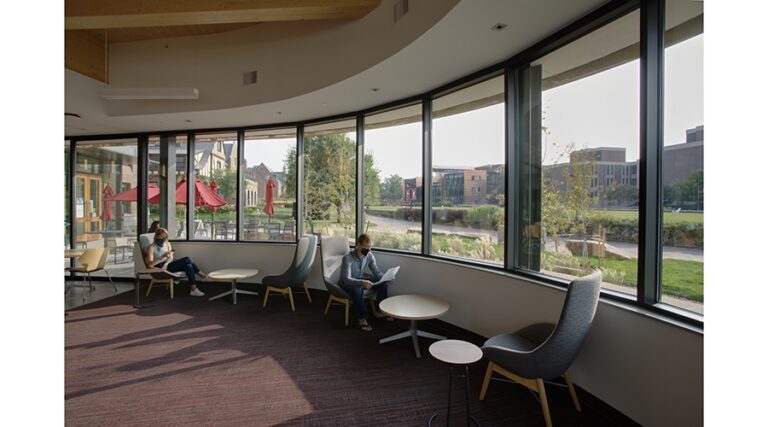
Image: University of Denver Burwell Center for Career Achievement
What They Do: A great resource to find information regarding career opportunities such as internships, part-time jobs, and full-time jobs. They also advise making a better hiring profile through cover letter and resume guides and providing mock interviews and other services.
Best Use of the Resource: The best way to use this resource is to schedule an appointment with an advisor. This advisor can connect you with the resources you need to take the next steps towards your career.
Who to Contact: Talk with a career advisor in the career center or find their email online.
Computer lab
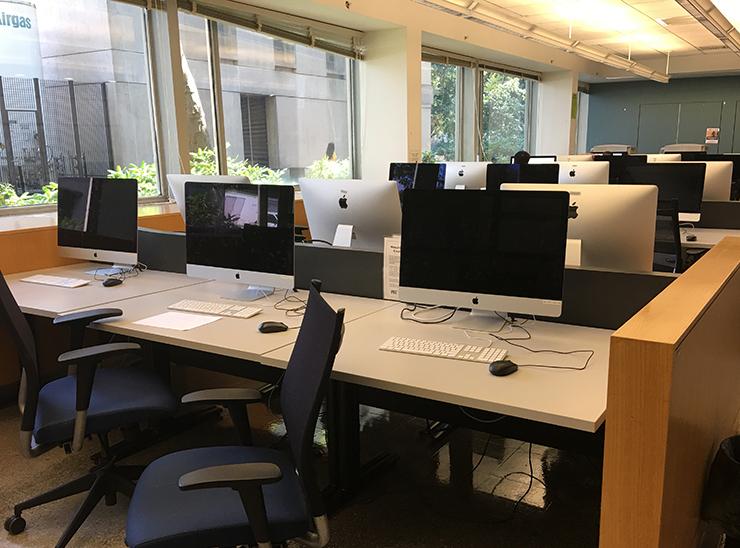
Image: Massachusetts Institute of Technology
What They Do: Suppose you need to use a computer or printer, the computer lab has you covered. These labs are usually for school and work-related projects only.
Best Use of the Resource: The best way to utilize this resource is to find a convenient time for you and find an area where you will be able to finish your work.
Who to Contact: Talk with the lab manager and lab assistants on staff in the computer lab.
Counseling and mental health center
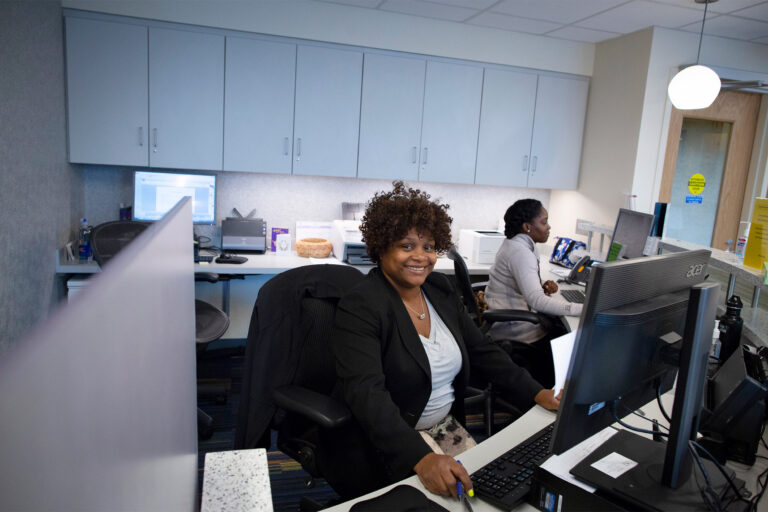
Image: Harvard University
What They Do: Counseling and mental health centers offer free, short-term, confidential 1×1 counseling, group counseling, and wellness classes. Staff can refer you to affordable, long-term mental health and counseling services. Due to COVID-19, many universities are providing virtual counseling and mental health services.
Best Use of the Resource: Students can use the counseling and mental health services on their campus to address and navigate various topics: anxiety, depression, managing stress, family and relationships, substance abuse, grief and loss, dating and relationship violence, and much more. NOTE: many universities have waiting lists for obtaining mental health and counseling services. It’s best to reach out before the beginning of the semester and ask for other resources if the waitlists are full.
Who to Contact: Contact Counseling and Mental Health Center receptionist and staff via email or online, or students can make an appointment by phone or through the center website.
Faculty office hours
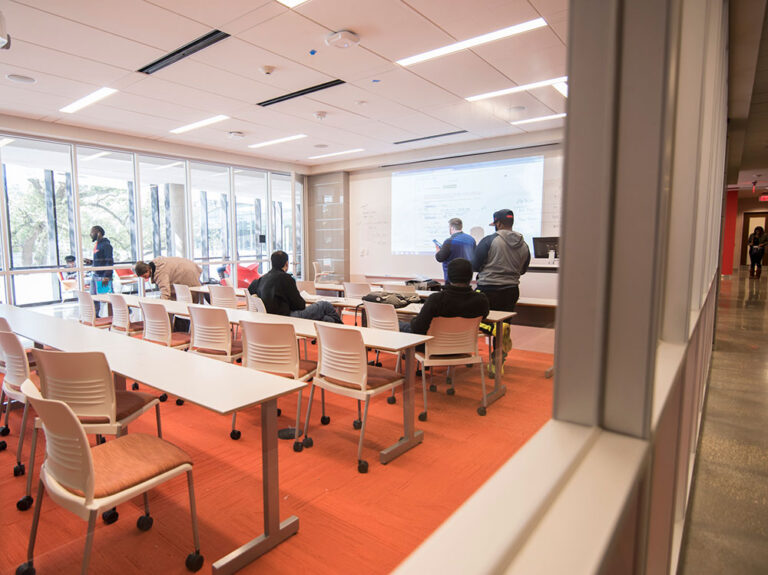
Image: Tuskegee University
What They Do: Faculty office hours are where you can find professors, teaching assistants, and other staff. Office hours are a time where your professor is available to speak with you individually. This is an excellent opportunity for in-depth one-on-one learning, especially if you feel confused by the class topics.
Best Use of the Resource: Take advantage of your professor’s office hours! They have scheduled time specifically for talking with their students one-on-one. This can be a chance to get feedback on an essay, prepare for an exam, or build your network.
Who to Contact: Professors usually list their office location and times available on their syllabus.
Financial aid office
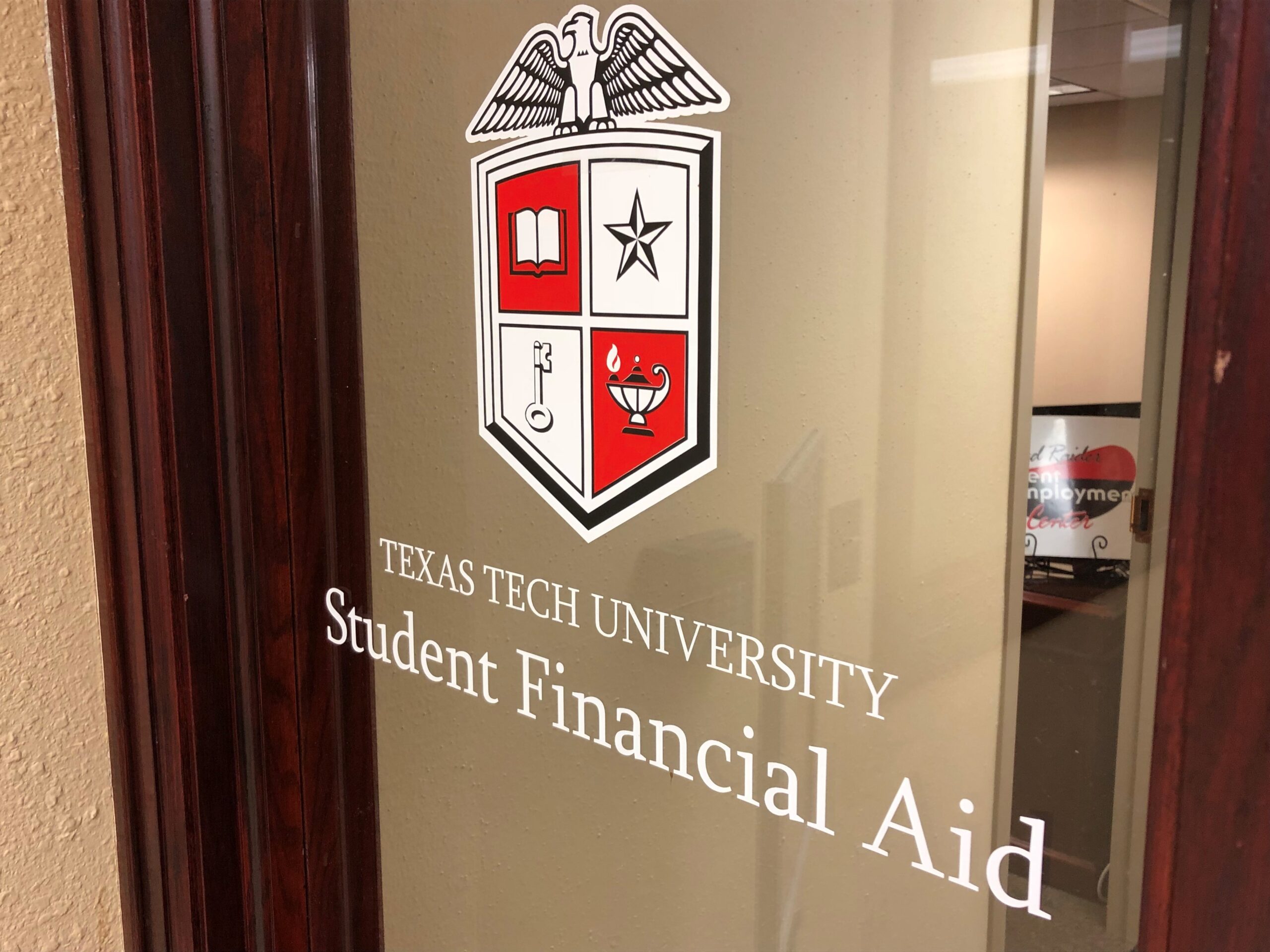
Image: Texas Tech University
What They Do: The financial aid office is where you can receive help or advice regarding paying the cost of attendance.
Best Use of the Resource: Financial aid officers can assist you with identifying options for receiving financial aid, enrolling in payment plans, or emergency funds.
Who to Contact: Contact your financial aid officer via email or by going to their office in person.
Health services
What They Do: Most university health services provide treatment for general health concerns such as colds, viruses, minor injuries, and STI screenings. Other health services vary depending on the school. NOTE: Due to COVID-19, there may be a change in the availability of health services or procedures for health services.
Best Use of the Resource: If you have health insurance, it’s recommended that you provide your insurance documentation as it may help lower the cost of services. NOTE: you can still utilize your campus’ health services even if you don’t have health insurance.
Who to Contact: Contact Health Services receptionist and staff, or students can make an appointment through phone or through the health services website.
Library

Image: Howard University
What They Do: The library is a place that offers a space to study alone or by reserving study rooms. They will also connect you with all the books, articles, journals, and databases you need in order to succeed in your studies.
Best Use of the Resource: Librarians are amazing resources who are there to help you find the research and information you need. If you are in need of a space to study the library has many quiet spaces that you can find.
Who to Contact: Visit your school’s library website, or talk with a librarian behind the desk when you enter the library.
Office of disability services

Image: Indiana University
What They Do: University office of disabilities provides a variety of services for students with documented disabilities, including testing accommodations, academic adjustments, sign language interpretation, note-taking, priority class registration, reserved seating, and more.
Best Use of the Resource: If you’re seeking any sort of accommodations, it’s important to touch base with your professors and the office of disability services during syllabus week to ensure your needs are met. If you suspect you have a disability but don’t have a diagnosis, you can also reach out to the office of disability services for referrals on an assessment. Check your campus’ office of disability services website to see if you’re eligible for services.
Who to Contact: Contact the Office of Disability Services staff and faculty by email, through the office website, or by phone.
Ombudsman services

Image: University of Tennessee
What They Do: A university ombudsman office provides students with free advocacy and conflict resolution services. A university ombudsman offers a confidential space to discuss interpersonal difficulties and conflict resolution techniques. A university ombudsman can also help navigate university bureaucracy and identify options so you can seek resolution.
Best Use of the Resource: Contacting your university’s Ombudsman Office is the best way to receive support with any of the following issues: grade disputes, academic dishonesty, problems with faculty advisors, conflicts with professors, processes, departments, or other students, enrollment issues, and more.
Who to Contact: Contact ombudsman office representatives and faculty by email, through the office website, or by phone.
Registrar’s office

Image: Florida Agriculture and Mechanical University
What They Do: The registrar’s office maintains your academic, financial, and personal information for the school’s records. They also publish the course schedule, academic calendar, final exam schedule, and course catalogs.
Best Use of the Resource: The registrar’s office can provide you with your transcript or other academic or financial records.
Who to Contact: Registrar offices have many resources online, but you may also stop by in person.
Student life
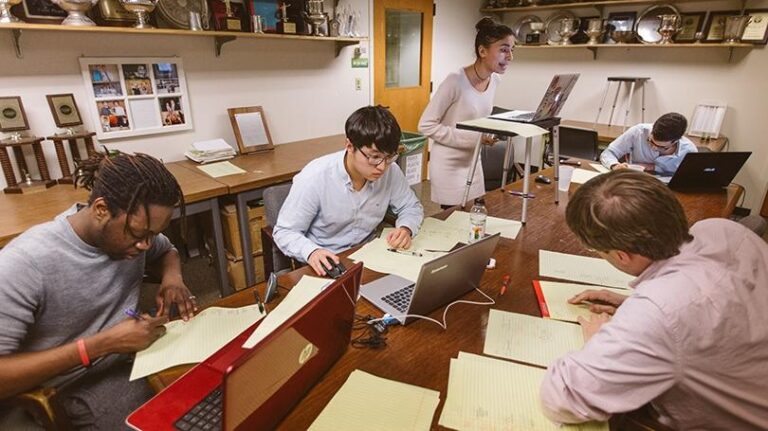
Image: Dartmouth University
What They Do: The student life office contains information regarding the events and organizations that are on campus. This provides a great option to join a club or organization that shares a similar interest or concern. This also helps build a social network that can be used in the future.
Best Use of the Resource: The best way to utilize this resource is to find a convenient time for you and find an area where you will be able to finish your work.
Who to Contact: Student Life staff can be found at the student life center on campus or online.
Testing center
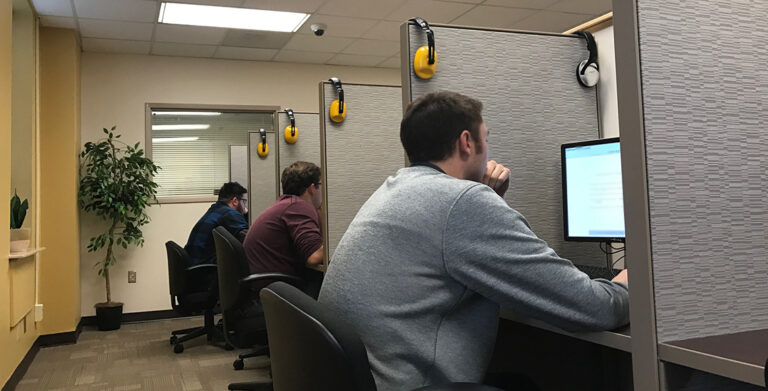
Image: University of South Carolina
What They Do: If you need a quiet and more private area to take a test, the testing center is a resource that can be utilized. Testing centers can also be available if you request accommodations.
Best Use of the Resource: In most cases, you will need to gain permission from the teacher and check-in with testing center staff to make sure that you are able to take the test here instead of classroom. For some online courses, students may be required to use campus testing centers, typically a computer lab, to take exams.
Who to Contact: Talk with your instructor, schedule an appointment on the testing center’s website, or stop by in person to schedule an appointment.
Tutoring center
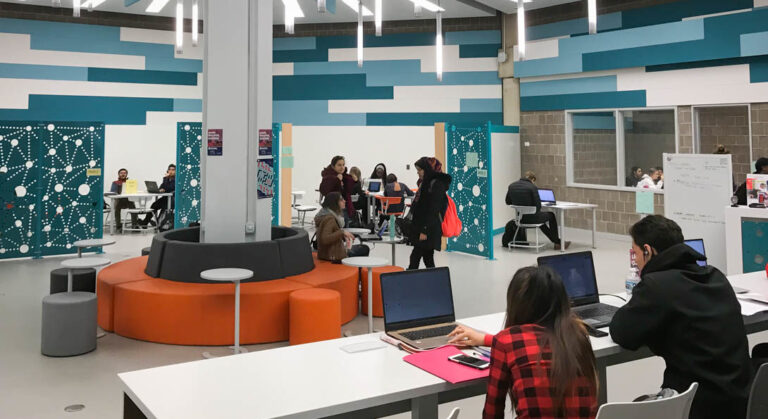
Image: University of Illinois at Chicago
What They Do: If you would like extra practice or need more lectures to understand a class, the tutoring center is a great place to receive the additional lecture.
Best Use of the Resource: There are often scheduled lectures as well as appointments that can be made with individual tutors. The best way to use these tutors is to come with prepared questions to ask.
Who to Contact: Talk to your instructor, academic advisor, or contact the tutoring center directly.
Veteran’s office

What They Do: For students who are veterans or have parents or guardians that are veterans, the Veteran’s Office provides a range of services and benefits. This includes scholarships, career services, health and wellness services, tutoring, and more.
Best Use of the Resource: It’s best to reach out to your campus’s Veteran’s Office or visit their website before the beginning of the semester to go over any questions you might have. The office can also provide answers on how to access VA benefits on VA.org
Who to Contact: Contact veteran’s office faculty and staff through email, the office website, or by phone.
Writing center
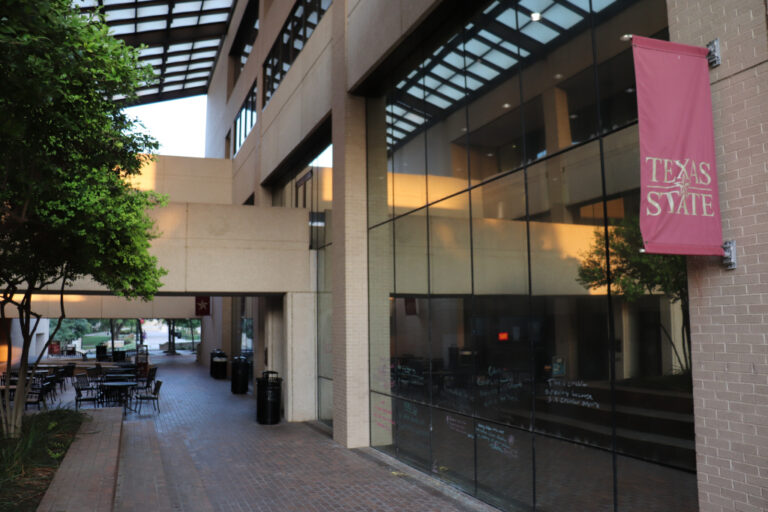
Image: Texas State University – University Writing Center
What They Do: The writing center is a great resource for improving your essays. They won’t write the essay for you, but they will provide feedback and suggestions to make your paper the best it can be.
Best Use of the Resource: The best way to use this resource is to schedule an appointment. It is important to have at least a rough draft to get feedback from the writing tutor.
Who to Contact: Contact writing center staff by stopping by the office on campus, sending and email, calling, or scheduling an appointment on their website.

